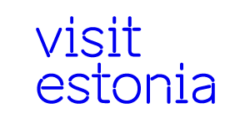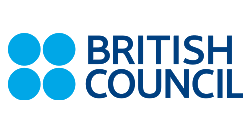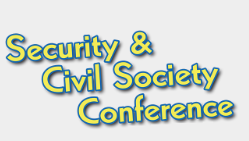AGENDA
Join conference of Green Habito and EuroMeduc Networks
4-7th December 2025, Tallinn/Toila, Estonia |
“The impact and effectiveness of development cooperation on European & Global security in time of turbulence”
PROGRAMME 4th– 7st of December, Toila Spa Hotell, Estonia
Thursday, 4th December 2025 Arrivals and sightseeing in Tallinn
- The arrival of Officials and Speakers in Tallinn
- The arrival and registration of the delegates
- Preparation of Conference and
- 13.00 – 16.00 Visiting NGOs: MONDO and Estonian Roundtable for Development Cooperation etc
- 13.00 – 14.00 Visit of government institutions (Estonian Centre for International Development (ESTDEV), Estonian Parliament and Representation of the European Commission in Estonia) for registered participants only. Please bring your passport.”
- Sightseeing tours in Tallinn
- Departure at 18.00 pm to Toila Spa Hotell & other hotels (Accommodation and Venue place)
- Arrival in Toila Spa Hotel at 20.00 pm and Dinner
- 20.00 – 22.00 Organising Committee meeting
Friday, 5th December 2025. CONFERENCE DAY ONE, Toila Spa Hotell
09.00 – 10.00 Registration and coffee
10.00 – 11.00 The Opening Ceremony and keynote speeches
Moderator of the Conference: Amb. Hatem Atallah
– Welcome speech by Kairi Saar-Isop, Director General, Department for Development Cooperation and Humanitarian Aid, Ministry of Foreign Affairs
– Welcome speech by Maria Gratschew, director of Nordic Council of Ministers´ Office in Estonia
– Welcome and keynote speech by Elis Paemurd, Deputy Head of the European Commission’s Representation in Estonia, Head of Media and Communication
– Keynote speech by Rilli Lappalainen, President of CONCORD Europe Network
11.00 – 12.30 I Panel discussion with experts, delegates and interested members of the public on “Development and aid policy in 2025: needs, challenges and expectations”
The European development policy fosters sustainable development and stability in developing countries, with the ultimate goal of eradicating extreme poverty. Development assistance is one of the pillars of the EU’s external action, alongside foreign, security, and trade policies. In December 2021, the European Commission unveiled an ambitious Global Gateway investment programme for the period 2021-2027, through which the EU institutions, together with Member States, aim to develop digital technologies, green energy and clean transport networks, improve health and education systems, and promote research around the world, and in particular in developing countries Along with the EU, there are many other governmental institutions like Norwegian Agency for Development Cooperation, Swiss Agency for Development and Cooperation, the United Nations programs and of course USA government who are providing the biggest development aid assistance in the world. The development aid policy in 2025 has been impacted from recent changes in the global geopolitics as the USA government has paused all US foreign assistance funded by or through the State Department and US Agency for International Development (USAID) and many rescue programs have been impacted. The Brutal Russian war in Ukraine has brought instability and chaos. Let’s discuss the needs, challenges and future expectations of the stakeholders and actors from the global perspective.
Moderator: Ambassador Hatem Atallah, member of EMUNI’s Management Board (Tunisia/Slovenia)
- Margus Gering, Head of Cooperation and Development for Ukraine, Estonian Centre for International Development
- Luc Meissner, Governance and Fragility Expert, Belgian agency for international cooperation
- Eleanor Carey, Policy Analyst, Development Co-operation Research Unit, Organisation for Economic Co-operation and Development (France)
- Rilli Lappalainen, President of CONCORD Network/ CEO Finnus (Belgium/Finland)
- Elis Paemurd, Deputy Head of the European Commission’s Representation in Estonia, Head of Media and Communication
12.30 – 13.00 Working groups
13.00 – 14.00 Lunch (at the restaurant)
14.00 – 15.30 II Panel discussion with experts, delegates and interested members of public on
“Global challenges and its impact on Estonia and the World (climate change, education, social security, extremism, human rights, democracy, economic growth, humanitarian aid)
The global crisis changed the economic order, deepening the challenges developing countries will face in the decades ahead. Joblessness is making it harder for families to improve their living standards. Growing energy needs are exacerbating the threat of climate change. Rapid population growth is overwhelming urban infrastructures. Water scarcity and inadequate food security are endangering the lives of millions. Humanitarian crises around the world leaving millions without access to food, water, shelter, and healthcare. These emergencies strain global aid systems and highlight deep inequalities in protection and support for vulnerable populations. Such strains also heighten the potential for conflict, as existing geopolitical tensions between global powers had a big impact on the all aspects of our life.
Moderator: Triin Roos. Executive Director of Estonian Roundtable for Development Cooperation (Estonia)
- Aysegul Bayar Hildgen, Policy Analyst, Civil Society, Reforms and Partnerships for Development Impact, Development Co-operation Directorate, Organisation for Economic Co-operation and Development (France)
- Michael G. Kavuklis, Political Scientist, Coordinator in Chief of the Europe, Entrepreneurship & Sustainable Development Forum of Rhodes (Greece)
- Mette Brogden, Professor at Arizona University (USA)
- Mahmoud Ezzat, Director of Center for Strategic Studies, Bibliotheca Alexandrina (Egypt)
- Rashid Iddrisu, Director of WIACT (Spain/Ghana)
- Madara Grinsteine, Development Cooperation Project Manager at Marta Centre (Latvia)
15.30 – 16.00 Working groups
16.00 – 16.15 Coffee break
16.15 – 17.30 III Panel discussion with experts, delegates and interested members of public on “The future of development cooperation in turbulent times: possible scenarios”
This panel discussion will provide participants and development actors a framework to understand, track and cope with the fast-changing and increasingly complex global context for development in terms of multipolar divided world where global challenges are left unchecked. It looks back on the main drivers that have led us this far, and summarizes crucial challenges for actors in development. A world in which environmental challenges are addressed but at a large social cost. It looks back at what triggered the strong eco-oriented global development policy and summarizes what this has meant for the organisation of and challenges for development cooperation or a world in which a diversity of actors challenges the economic and political establishment and experiments with alternatives.
Moderator: Stefanos Vallianatos, Co-Founder of Fotoessa, Head of Greek Network of Anna Lindh Foundation (Greece)
- Janet Vähämäki, Senior Researcher, Stockholm Environment Institute and Swedish Defense Research Agency
- Anita Käppeli Director of Policy Outreach, Center for Global Development Europe (Switzerland/UK)
- Dana Heiberga, Chief Officer for Development Cooperation, Head of Development Cooperation Department, Central Finance and Contracting Agency (Latvia)
- Kairi Saar-Isop, Director General, Department for Development Cooperation and Humanitarian Aid, Estonian Ministry of Foreign Affairs
- Tamta Mikeladze, Director of the Social Justice Center (Georgia)
17.30 – 17.50 Working groups
17.50 – 18.00 The concluding remarks of the Conference by Moderator: Amb. Hatem Attallah.
19.30 – 21.30 Official Reception
DAY TWO. Saturday, 6th December 2025
09.00 – 9.40 Elaborating Conference Declaration language on „Empowering Sustainable approach in development aid through success stories and necessary changes in the implementation policies“
09.40 – 10.00 Summary of the agreements. The conference Moderator & Working Group Rapporteurs
10.00 – 10.30 Keynote speakers on Conference Themes & Goals:
– “What’s Next for the Global Development Agenda?” by Rebecca Eriksson is a Junior Research Fellow, Norderio (Sweden)
– “Sustainable Strategies for Development Cooperation to Reduce Dependency on Critical Raw Materials: The Roles of Governments, Businesses, and Civil Society” – Associate Professor Michael Søgaard Jørgensen, Aalborg University (Denmark)
Two parallel public debates:
This debate explores how societies can strengthen their resilience and security against cyber aggression (Russian) and cognitive & information warfare, focusing on the crucial role of civil society, sector stakeholder, independent media, and democratic institutions. As disinformation, propaganda, and fake news increasingly threaten public trust and social cohesion, effective fact-checking, media literacy, and community awareness have become essential defenses. The discussion will bring together experts, policymakers, civil society and private sector actors to examine strategies for countering malign influence, safeguarding information integrity, curber security and building collective resilience in the digital age.
- Anneli Ahonen, research associate of Cardiff University, Strategic communication & influence campaigns analysis expert (UK/Sweden)
- Oliver Moody, Berlin Correspondent for The Times; Author of Baltic: The Future of Europe (Germany)
- Julia Dobrowolska, Researcher, University of Warsaw (Poland)
- Gert Antsu, Diplomat, Estonian Ministry of Foreign Affairs
- Ursula Roosmaa, Director of the British Council in Estonia
10.30 – 12.00 Community debates “The role of CSOs and Youth in fostering effective development co-operation and community change”
Moderator: Anneli Ohvril, Green Tiger Foundation (Estonia)
- Zahid Mahmood, Director of British Council in Libya (UK/Libya)
- Mostafa Abbas, President of the Euro-Med Youth Federation e. V (Germany)
- Stelvy Emerson Banzouzi, Co-Founder of the Union for the New African and European Generation (France/DR Congo)
- Tetiana Revenko, Director of “Dwa Skrzydła UA” Foundation (Poland/Ukraine)
- Margit Sare, Head of Peipsi Center for Transboundary Cooperation (Estonia)
12.00 – 13.00 Practical thematic session (Sharing best practices, experience and case studies)
Stakeholder in action: advancing development aid and security questions in examples of development aid and humanitarian crises in regions:
- Eastern Europe (Ukraine, Moldova, Georgia, Armenia)
- Africa region (Namibia, Ghana, DR Congo, Benin, Kenya and Tanzania)
- Mediterranean region (Tunisia, Egypt, Turkey, Syria and Libya)
- Other world (represented by invited experts and development agencies)
The session is organised by the invited experts and organisation representatives who are addressing development aid and humanitarian crises, community change in their work and willing to share own experience and best practices from the human rights and SDGs achievement perspective. The Session is run in the format of a world cafe where CSOs, governmental agencies and other stakeholders are sharing own practical experience.
12.00 – 13.00 Working group on official statement: Elaborating Conference Declaration language on “Towards 2030: Effective development cooperation in support of the Sustainable Development Goals”.
13.00 – 14.00 Lunch
14.00 – 17.00 Practical visits to Estonian CSOs (and conducting debates on the effective role of Civil Society in advancing development aid and generation of positive impact) and meetings with Estonian and European officials who are advancing development aid policy.
17.00 – 17.15 The concluding remarks of the Conference by moderator: Amb. Hatem Atallah.
17.15 – 20.00 Estonian Culture Programm: Visiting: Mining Museum in Kohtla Nõmme, Narva Museum and /or Vaivara Museum and Sillamäe City Museum (as alternative)
DAY THREE. Sunday, 7th of December 2025 Conclusions
09.00– 09.30 Official Presentation and adoption of the Conference Declaration on “Towards 2030: Effective development cooperation in support of the Sustainable Development Goals”.
09.30 – 10.00 Summary of the agreements – The conference Moderator & Working Group Rapporteurs
10.00 – 11.00 Conclusions and follow-up activities for 2026 (Signing symbolic agreement of non-formal network creation and conduction in Estonia of the annual conference by networks)
11.00 – 11.30 Practical arrangements
11.30 – 13.00 Official closing and reception
13.00 – 15.00 Departure to Tallinn, Bus to the airport
Join us virtually on the 5th and 6th December 2025 at Zoom Conference












